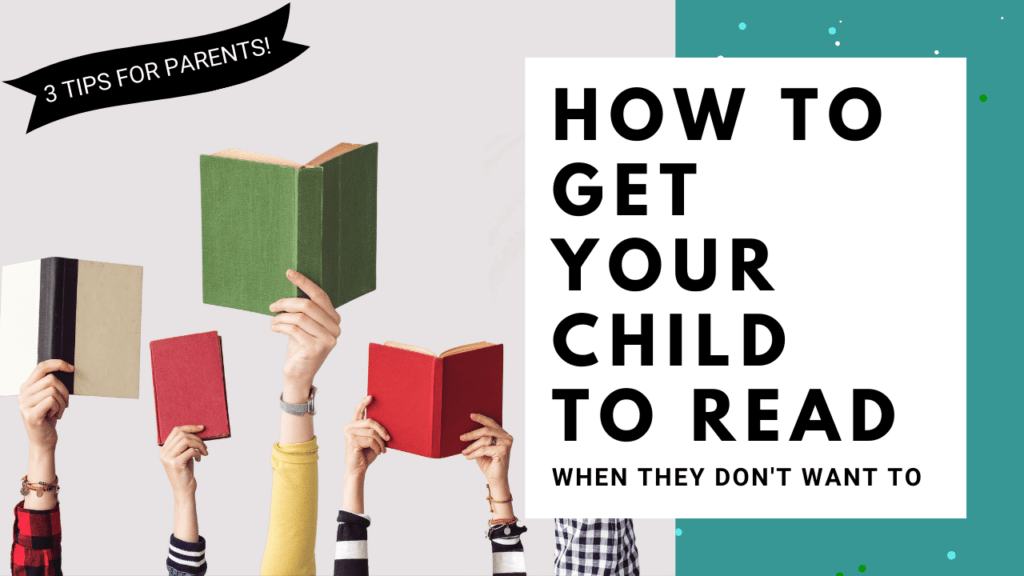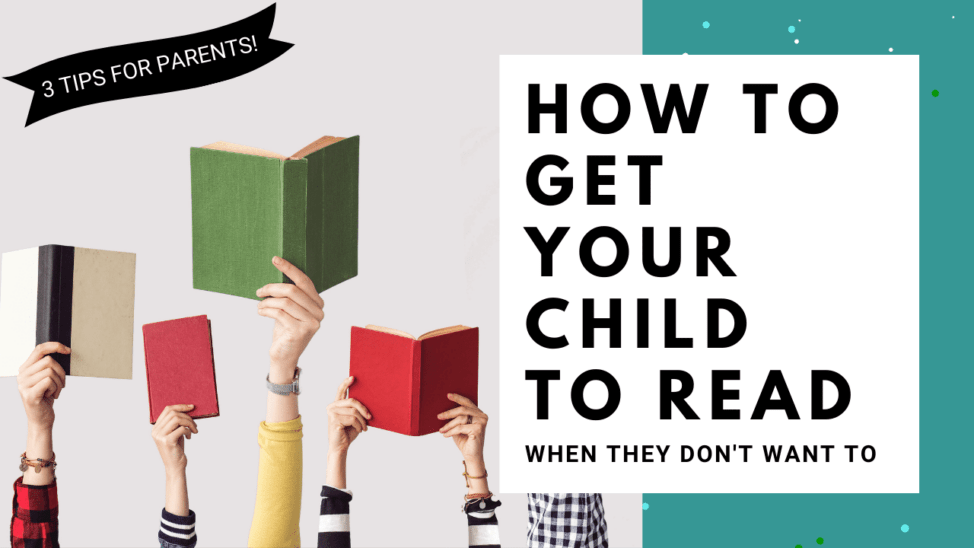By Katie Azevedo, M.Ed.

Not every child (or adult!) likes to read. Does that bum me out? Yep. But similarly, not everyone likes to swim or cook or watch scary movies.
The challenge for many parents is when a child doesn’t want to read when they have to read, such as a required book for school.
If your child doesn’t want to read and insists that they don’t like reading, then I argue there is at least one of three explanations:
- Your child genuinely doesn’t find reading enjoyable. (Here are 8 tips for reading books you don’t like.)
- There is an undiagnosed underlying issue, such as a learning disability, poor eyesight, etc.
- Poor confidence and limiting beliefs are hindering your child’s literacy risk-taking.
There are various and specific interventions and strategies to target each of the three reasons listed above. I cover many of those topics in my other tutorials and in my one-on-one coaching sessions.
In this post, I’m taking a different angle. In this post, I’m stepping outside the box to help you get your child to read when they really don’t want to.
Here, I offer suggestions that may encourage your child to read in unconventional ways.
My reasoning is that reading begets reading. In other words, if we lower the access point to literacy by removing some common deterrents (boring books, irrelevant books, books at the wrong reading level, books that are too long for children with working memory deficits, etc.), your child will be more attracted to what remains: the story.
And isn’t a child reading anything preferable to a child reading nothing?
How to get your child to read when they don’t want to
1. Subscribe your child to magazines.
Subscribe your child, in his or her name, to three or four interest magazines. Some good options are National Geographic for Kids, Highlights for Kids, Sports Illustrated for Kids, and Time for Kids. If your child likes cars, get a car magazine. If your child is into cooking, get a cooking magazine. Here are some more popular magazines for kids.
Magazine subscriptions magically get your child looking forward to reading. What child doesn’t like getting mail!?
2. Let your child read whatever they want.
Without judgment, let your child pick his or her own book. Even if the book is below their reading level or on a topic you personally don’t like, let them read it. Do you have a middle schooler who just picked up a children’s picture book? Let her read it.
I have to be honest: I’m not a fan of graphic novels. I think they’re just glorified comic books. (I probably just lost some fans with that confession.) But do I let my own children read graphic novels? You bet I do! While I’d personally prefer them to read books with more words, I am thrilled to have them read a graphic novel instead of engaging in some other activity that involves less cognitive skills.
Letting your child choose their own book, no matter what it is, gives your child autonomy. Autonomy increases confidence. Increased confidence leads to greater literacy risk-taking. This is all good.
3. Turn on the TV subtitles.
You might take the award for World’s Most Annoying Parent Ever (I have a few of those plaques myself), but turn on the subtitles on your TV. If your child watches a movie or a show with the subtitles on, it’s nearly impossible that their eyes can entirely ignore the text on the screen. Even if they manage to ignore 50% of the subtitles during a 90-minute movie, that’s still 45 minutes of reading!
Watching a movie with subtitles is similar to listening to an audiobook while reading along in the text. This audio-visual paring has tremendous advantages, especially for children with language-based disabilities.
At the end of the day, reading is reading. Are there different gains to be made by reading and annotating Shakespeare instead of reading subtitles on a Disney movie? Heck yes. But not every reading experience should be cognitively demanding for our children. Some reading experiences should be about the story. The enjoyment. The ease. The act of reading itself.
More resources for parents:
- The Executive Function Journal: The best way to develop executive functions
- 5 summer reading tips for parents
- How to help your child manage high school Part 1
- How to help your child manage high school Part 2
- How to help build your child’s executive functions

